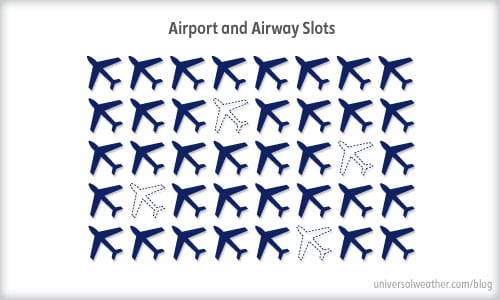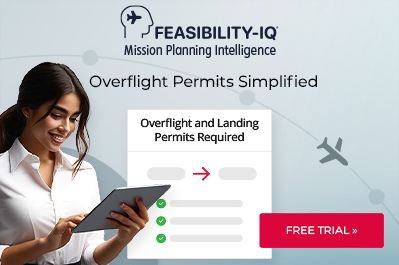4 Airport Slots and PPRs to Pay Attention to in Asia

This aviation blog post is part of a series on airway and airport slots.
Procedures for obtaining airport slots and Prior Permissions Required (PPRs) vary worldwide. In Asia, they have their own unique characteristics. It’s best to work with an experienced 3rd-party provider in advance to understand regulations or request format requirements, including applicable slot and PPR restrictions. In some cases, you’ll need to make separate applications for airport slots and landing permits. In others cases, airport slots will only be approved after landing permits are obtained. Allowing plenty of lead time and using an experienced 3rd-party provider will help ensure a successful outcome.
1. Hong Kong, Hong Kong (VHHH)
Airport slots must be requested in the General Aviation Clearance Request (GCR) format. The slot window deviation is -15 minutes to +15 minutes. A landing permit may only be requested after slots have been approved, and you may not request both the slots and landing permit at the same time. Make sure the approved times on the landing permit match the approved airport slot times. This is a time-sensitive process: When you receive your slots, you may have to revise your schedule to ensure that both the slot and landing permit times match.
2. Tokyo Narita, Japan (RJAA) and Tokyo Haneda, Japan (RJTT)
Both airports (RJAA and RJTT) are slot-controlled. RJAA has a slot window deviation of -1 hour to +1 hour, while RJTT’s deviation is -15 minutes to +15 minutes.
RJAA slots must be requested no later than the last working day before the 5th of the previous month (of intended operation). Otherwise, operators must wait until after slot allocations are made for other operators (who have made their requests within the time frame stated above) at 0800Z on the 15th of that month in order to obtain slots from the remaining pool.
Airport slot requests for RJTT must be made no later than the last working day before the 15th of the previous month (of intended operation). Slots will be allocated by the 25th of the month for operations for the following month. Otherwise, you will have to wait until the 25th, after all allocations have been made, to access remaining slots.
RJTT is a less flexible airport overall in terms of slots. Between 0600 and 2300 local, only eight slots are designated for General Aviation (GA). RJAA is more flexible in terms of accommodating changes or delays.
3. Beijing, China (ZBAA)
For Beijing, China (ZBAA), airport slots will only be approved after the landing permit is obtained. Slot deviation is -30 minutes to +30 minutes. Only 15 GA movements are allowed between 0800-2200 local. Only one arrival or departure slot will be issued per aircraft per day during peak hours, which are 0800-2200 local. Chinese authorities are particular about changes to landing permits or slots, so it’s best to avoid schedule revisions when possible. If changes have to be made, it’s best practice to request them well in advance, as short-notice revisions may be denied by the Civil Aviation Administration of China.
4. Mumbai, India (VABB)
Due to heavy airport traffic, request slots through your ground handler as far in advance as possible. You’ll need separate applications for airport slots and landing permits to operate to VABB. For this location, airport slots must be obtained before a landing permit is approved. The Indian Civil Aviation Authority typically issues landing permits one and a half to two weeks in advance. However, you may request airport slots and set up ground handling much earlier. Be cautious in revising slots, as GA closures (0800-1000 local and 1730-1930 local) can affect your flight. Delhi, India (VIDP) also requires slots and has the same slot window deviation as VABB (-15 minutes to +15 minutes). Avoid making many changes to your schedule. However, if changes are required, it’s best practice to allow yourself plenty of lead time to obtain a revised approval.
Conclusion
There are many airports in Asia that require slots, but the requirements vary from one airport to another. Due to an increase in traffic worldwide, we foresee that the number of airports requiring airport slots will increase in the future. An experienced 3rd-party provider will be able to provide you with the latest information about slot availabilities, requirements, formats, closures and resources to obtain the airport slots needed for your trip.
Questions?
If you have any questions about this article, contact me at larrywilliams@univ-wea.com.




